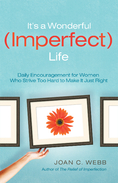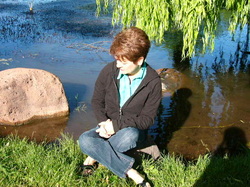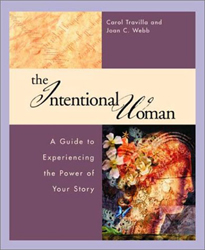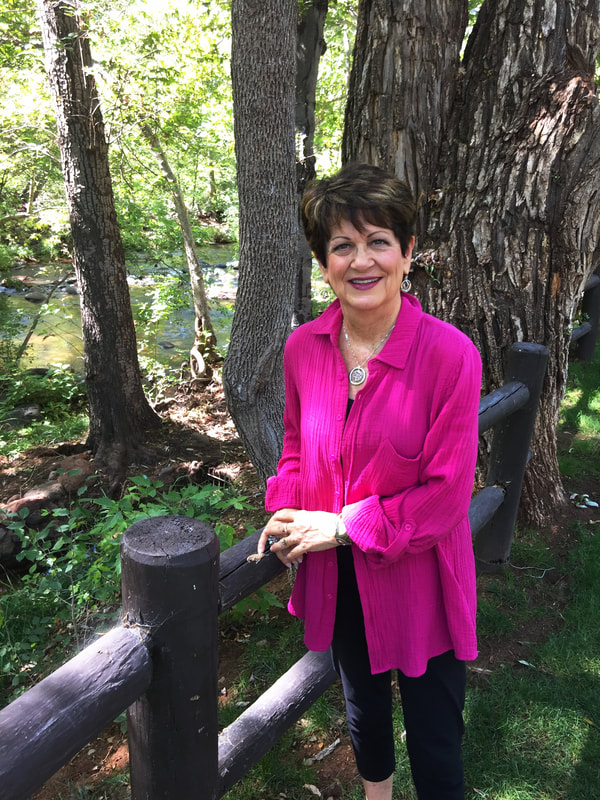0 Comments
 Recently we’ve been surrounded with news of death, explosions, and terror perpetrated on innocent men, women and children. Pain is deep; grief inevitable. Like others, I’ve struggled to find words of comfort and hope. Then I remembered something God showed me through an experience that His Son Jesus had while He lived here on earth. When one of His best friends died, Jesus arrived in town several days after the burial. At the grave Jesus wept tears of sorrow and anger — sorrow at the death of His friend and anger at the unbelief and wrong so prevalent in an imperfect and decaying world.*  Like Jesus, we feel angry and sad when we see the devastating effects of sin and unfaith. Death, abuse, injustice, and pain are the natural results of living in a world that ignores its Creator and doesn’t value others. Both anger and grief are normal responses to death, evil, and injustice. As long as we live on this damaged planet, we will experience these and other disturbing emotions. I believe that one day we who have chosen to follow Jesus, will join Him in a sorrow free place. Until then, like Jesus, we can allow ourselves to grieve, to care, to pray and to help wherever we can. So I’m praying, “Lord, teach me to be honest with my own human emotions, to accept people when they hurt, and to reach out – all while dreaming of a better day to come.” Want to join me? * Jesus’ story from John 11:33-38.  Annette! My twin-cousin Jean and I loved that name. We watched Annette Funicello on TV. Jean and I even dreamed of naming our daughters (someday in the future) that pretty name, “Annette.” (Jean on left. Joan on right in photo. How about that "pompadour"??) But we couldn’t both have daughters named Annette. Solution: Jean’s first-born was a girl and she named her “Annette.” She was (and is!) beautiful just like Annette Funicello; dark hair, glowing olive skin, lovely smile. I named my first-born (a girl, also!) Lynnette. She’s beautiful, too, with blond hair, fairer skin and a gorgeous smile. Then I grew up to write a book about how joy and imperfection can co-exist titled The Relief of Imperfection. Annette Funicello grew up to act, dance and sing in movies, eventually developing multiple sclerosis and showing us all that indeed joy, pain and imperfection can co-exist.  Annette Funicello said, “Life doesn’t have to be perfect to be wonderful!” Her words so impressed me that I quoted her on page 123 of The Intentional Woman book that I co-wrote with Carol Travilla. And two books later, Annette’s quote led way to the title of my devotional book, It’s a Wonderful (Imperfect) Life, for women who strive too hard to make it all just right. It’s amazing how one person can personally impact another and never know about it. One article I read quoted Annette Funicello as saying, “I thank God I just didn’t wake up one morning and not be able to walk. You learn to live with it [MS]. …This just makes me appreciate the Lord even more because things could always be worse. I know he will see me through this.” After Annette’s death on Monday, April 8, 2013 in Bakersfield (the city where my two children were born), her daughter Gina said, “She’s on her toes dancing in heaven … no more MS.”  Annette Funicello touched my life in numerous personal ways, although she didn’t know it here on this earth. Whether we realize it or not, we impact and influence others during our lives, also. That truth encourages to me today, because sometimes (I admit it!) I stress about whether I’ve done enough for God or if I’ve made a difference in the lives of the people He planned for me to touch. So today I’ll cease trying so hard to make that happen and let God orchestra the connections. He can do it, just like He connected Annette and me. Do you have an “Annette Funicello” story? Or a thought about how God makes connections that inspire? Please leave me a comment. I’d love to hear from you.  There is a gap between who God is and who you and I are. He cannot say, “Well, I realize you’re inherently flawed and disbelieving, but it doesn’t matter. I’ll just pretend you’re perfect and ignore that you are often self-preoccupied, untruthful, controlling and emotionally abusive to those you’ve promised to love.” If He did that, He would be untrue to Himself—and then He would not be God. Personally, I would have great difficulty honoring or worshiping a wishy-washy Deity who changes the rules on me and then expects me to figure out when and why. The Lord God that I revere is the same all the time and in every situation. He is always fair, right, good, reliable and loving. I deeply respect the spotless character and unchanging personality of God. I think that’s why I’m amazed that God—perfect in every possible way and knowing all things at any given moment—is even interested in me. But He is. He is interested in you, too. In His loving sovereignty (seems like an oxymoron, doesn’t it?), He designed an innovative (and frankly, miraculous) way for me to communicate and live peacefully with Him. We celebrate this way at Easter-time. “For God made Christ, who never sinned, to be the offering for our sin, so that we could be made right with God through Christ” (2 Cor. 5:21, NLT). God sent his flawless Son Jesus as His exact representative into my imperfect surroundings in order to reconnect me to Himself, the omnipotent Creator and Heavenly Father. Such a costly solution to the gapproblem between God and me! God might have gotten very pushy about it, yet He treats you and me—His human creations—with such incredible respect that instead He allows us to decide whether we want to accept His reconciliation proposal. God shows such compassionate understanding of our bottom-line dilemma: He is perfect and we are not. He provides our solution, and yet our refusal to believe and trust His provision is our deepest and basic problem. We need Him—and the good news is that He wants us and created a way for us to connect.  The key to connecting with God? We simply stop refusing Jesus, the True Easter Story. So what does God want from you and me this Easter? Not merely that we go to church–or try harder to be good–or give money to an important cause, although these are worthwhile endeavors. God longs for me–and you–to pray, admit our inability to be 100% sinless, believe that Jesus bridges the gap between us and Him and commit to trust Him with our lives. I’ve discovered that doing this brings me relief right now and ultimate hope for my eternal future. Where were you when you first talked to God about all this?  Dad and I walked from our hotel along the Nile to a large church near downtown Cairo. We arrived early, but the church was packed on this Palm Sunday morning. Ushers set up folding chairs in the aisles. People crowded the narthex. The standing crowd parted to allow the fifty blue-robed choir members to march down the center aisle. They carried palm branches and sang. We couldn’t understand the words, but we read them in the “guest” bulletin. “I love you, Lord. Come and be with us…” they sang. I cried. The articulate pastor met with us after the worship service. “We all have something to give, whether Western or Eastern Christians,” he said. “If we learn how to share, then people would know that the giver cares and sees the receiver as a fellow human being and brother.” He explained that was why he appreciated the Christian relief and development program I worked with at the time. We partnered together to offer food, training, jobs, and transportation to deeply disadvantaged families. The pastor’s daughter, a physician visiting from the United States, talked with us that afternoon. “As a child I wondered continually when someone would come take my dad away. “Yes,” admitted the pastor. “I’ve been in danger of being jailed almost every day of my life.” I chatted with the daughter (who practiced medicine in the U.S.) about topics like over-working, exhaustion, transition and burnout. “You know what it’s like to race inside, don’t you?” I asked. “Oh, yes,” she admitted. “It’s like a treadmill — if I try to get off I will fall.” Then she recounted stories about two of her patients who did fall off the treadmill during testing. We chuckled at the analogy. Although this happened years ago, I think of it today as I celebrate Palm Sunday 2013. Jesus left His perfectly supportive surroundings in heaven to live in this fickle world. One week He was adored, praised and openly honored with parades and palm branches. The next week He was mocked and killed. Seems so unfair. Yet, Jesus came for a purpose–the ultimate purpose!–to sacrifice His life so that all of us can be re-united with our perfect Creator God. All of us, the burned-out doctor, threatened pastor, penniless parent, and caring giver.  It doesn’t matter where you live or what’s happening in your life, Jesus says (about himself), “For God so loved the world that he gave his one and only Son, that whoever believes in him shall not perish [spiritually] but have eternal life.” It’s God’s personal invitation to you. If you’ve accepted this loving offer, what does this Palm Sunday 2013 mean to you? How are you celebrating today? Note: To protect the people involved, I changed some details of this true experience of mine, left out names and exact places, and chosen not to post actual photos.  It’s hard to relax when our personal satisfaction hinges on what someone else does or doesn’t do–or does or doesn’t believe. Doesn’t he know it could work better if he just listened to my plan? Doesn’t she get it? If you’re a little muddled about how over-helping, perfectionism and playing God are linked, you’re not alone. I’m often puzzled, too. Even experts get confused trying to sort all this out. On occasion, God splashes light into my fogginess through humorous life predicaments. Because all the universe is under God’s domain, I’ve found He can use anything to teach, nurture and grow me. (I love how He does that!) Sometimes new insight comes from surprising venues. Like that aha! moment I had while watching the movie Driving Miss Daisy a few years ago. The wealthy Miss Daisy and her longtime chauffeur have both aged considerably. As they discuss their situations, Miss Daisy accuses the chauffeur of continuing to drive even though his eyesight is failing. “How do you know how I can see, ‘lessen you look out my eyes?” is his response.  My immediate internal reaction: Whoa! Lord, forgive me for thinking I’m powerful enough to know another’s needs. I realize I will never see their life from their view. I want to learn to treat others with respect. Please help me. The apostle Paul, in his first letter to the Corinthians, cautions us about assuming we know another human being’s thoughts and feelings: “No one can really know what anyone else is thinking, or what he is really like, except that person himself” (1 Cor. 2:11, TLB). I’m continuing to discover the relief-filled truth that I can progressively release my need/urge to do and make it all just right for the people in my life. First step: intentionally trust God for what is not mine to control or direct. Then I can begin to enjoy living in the freedom and grace He patiently waits to give me–and others. Just wondering: Have you ever experienced what it feels like when someone insists they know what you’re thinking, what you need and how you should resolve your dilemma?  During February I’ve been thinking about LOVE–and noticing how some in our Christian culture view married-love. There seems to be a mini-epidemic of spousal-obsession that gives way to over-helping, people-pleasing and just plain “fixing.” (Okay, if you want to call it codependency, go ahead! And yes, it can be done with lots of words or with silent manipulation.)  This leads me to ask: What did Jesus say about how to love? Along with other wise teaching He said, “Love your neighbor as yourself.” (Matthew 22:39) The original word for “neighbor” means someone close to you. Well, your mate couldn’t be much closer, right? So here what I’m learning: Loving my spouse as myself does not mean loving him instead of myself. As a healthy child of God, I will love, respect and take care of myself. Yet I won’t be obsessively absorbed in self to the point of leaving him out of my inner life; nor will I live my life through orfor him. To live primarily through or for another person means that I feel, think, decide, and hurt for that person. I try my best to fix all situations so he does not have to be sad or disappointed or angry or hurt. I’m sorry to say that I’ve been there and done that. I thought this epitomized LOVE, but it backfired.  I discovered that “fixing” (or excessive helping and managing) can actually rob a mate of living his own life before God. It may even deny him a sense of accomplishment and self-worth because I give the impression, “You are not capable of doing this, so I’ll do it for you.” In this process, I often deprive myself of the time and energy I need to grow personally and spiritually. The relief-producing news: I can learn to accept, appreciate, and respect the person God created to live inside my own body. That God-ordained love, acceptance, and respect can splash over to my spouse. I can be authentic about our reality and still leave him room to develop and make his own decisions. I can learn to love myself and my spouse. It may be a messy process at times AND our married-love is worth it. For each couple, this growing process will look a little different. What would it look like for you? (You don’t have to over-share. I’d just love your interaction and comments!) NOTE: Guys, you can substitute the “him” words in the post to “her”, because guys can over-help and over-control, too. Just saying…  Ahhh. It’s LOVE week. All is well. Or is it? If you’re like some lovers, you may sense that one or both of you are trying too hard to control how the other one expresses love. Instead of increasing intimacy, it pushes you apart. So what’s up? Okay, no one is perfectly loving 24/7. Yet, you can grow in your Valentine-Relationship when you both commit to developing these God-honoring characteristics: 1. Allow for individuality. Differing talents or temperaments do not threaten true love. Feelings and thoughts can be expressed without fear. 2. Avoid trying to change the other. We may not like everything about our partner, yet when we consider the total picture we are able to be more accepting. 3. Care with detachment. Healthy love cares, listens, and responds; yet does not try to fix or remove the uncomfortable feelings of the lover. 4. Affirm equality of self and partner. A mature relationship treats the partners as equals. There is no sense of competition or one-upmanship. When you practice mature love, you accept what the other person is able or willing to give. You allow each other space to grow and develop. This week I invite you to pray with me: “Lord, teach me to love authentically…with joy and fun. I don’t wish to make inappropriate demands–and force my own way. Help me to be honest about what I want. And also listen to understand my mate’s needs and desires. You had a good idea when You created romantic love. Thank you.”  Have a lovely V-day. I know I will, ‘cuz it is also my birthday!  “I feel so unfocused and disorganized!” said my friend Laura. She had been downsized from her job, moved, and was trying to decide whether to get married again. “How can I manage all this change?" she asked. “It’s hard for me to be intentional. What in the world that is, anyway?” Perhaps like Laura, you wonder what I mean when I write about “becoming an intentional woman.” Although it's a process and not always easy, it is possible. I can't change anyone else, but I can make positive changes in my own attitudes and behavior. An intentional woman with a heart for God:
 Yet I believe that the key reason for living intentionally is to glorify God as the person He created you to be. In honoring our uniqueness, you and I come before our Creator and Savior with freedom and integrity. Just writing that down makes my shoulders relax and my breath to flow easier. How about you? What's one word that reminds you of an "becoming an intentional woman"? *Preparing to facilitate/teach an Intentional Woman Seminar this weekend led me to share this tonight.
Well, I’ll tell you. In January when I returned rested and replenished, I had new energy to work on the website I’ve been dragging my feet about for the last six months. It’s not quite done. I still have some content to write and edit and photos to add. But the “Books” drop down is complete and so is the new bookstore. Try it out!
I have an entirely new “BRAND”, as my son would say. He’s the one who has been helping me create this new look. New business cards. New colors. New coaching and lifeplan brochures which are now “one-pagers.”(They’ll be on my site later.) So click on over to take a quick SNEAK PEEK at my new site. (It’s not even launched yet, so you really are peeking. Enjoy!) Then tell me what you think. I’d love to hear from you. |
Joan C. WebbWriting, teaching, coaching to empower and set free. |








 RSS Feed
RSS Feed
